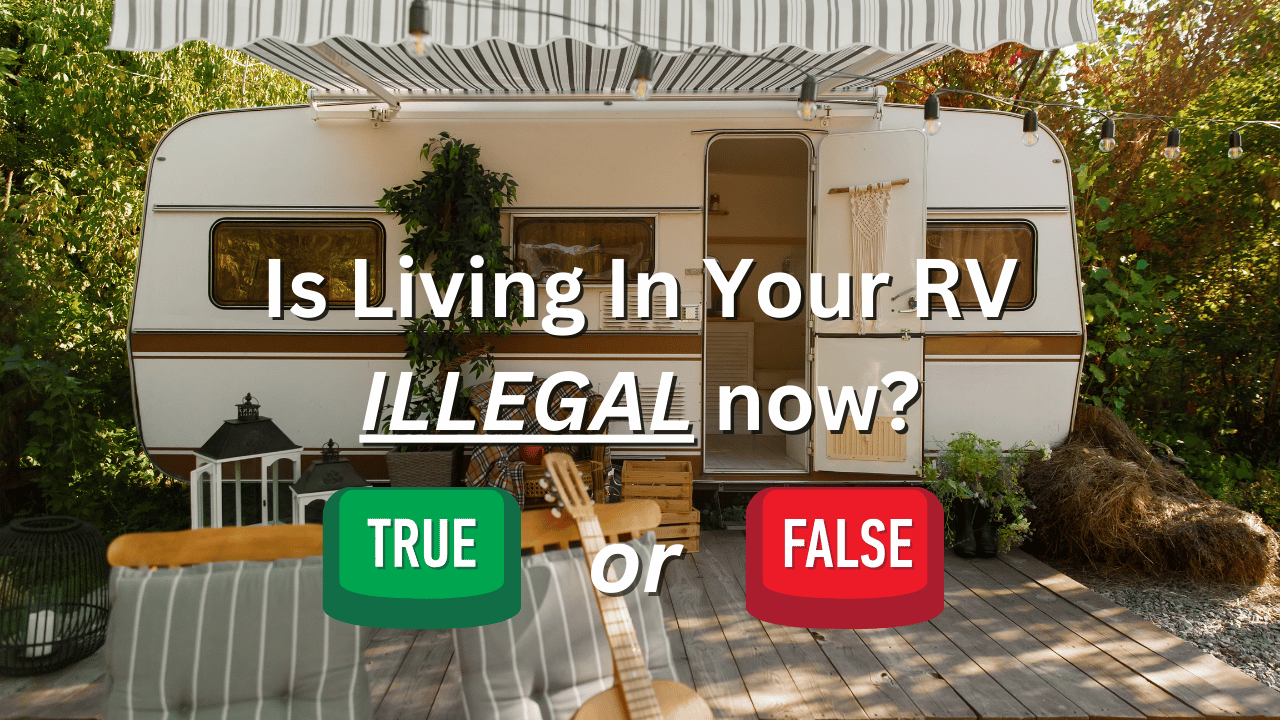Posted by
on
RV living has gained massive popularity over the years, with more people opting for a life of freedom on the open road. However, along with that growth, there has been a rising concern over new laws and bans on living – and even sleeping in RVs, Vans, and other vehicles in certain areas across the United States. Whether you’re a full-time RVer, a weekend warrior, or just considering the lifestyle, it’s important to separate fact from fiction when it comes to these so-called bans.

The short answer is NO. Despite alarming headlines and viral social media posts suggesting an outright crackdown on RVers, the reality is more nuanced. While some cities and counties have tightened restrictions on overnight parking and extended stays, RVing remains legal and widely accepted in most parts of the country. The key issue isn’t about banning RVs entirely, but rather regulating where, when, and how long they can park in certain areas.
The increase in RV regulations is often linked to concerns over:
Despite increasing regulations in some areas, RVers still have plenty of legal options for parking and camping, including:
If you’re concerned about RV restrictions, follow these simple guidelines to avoid trouble:
Engage with local communities – Many towns welcome RVers who contribute positively to their economy. Shop the towns you stay at, eat at their restaurants, visit local farmer’s markets. If you have time and are looking for community, go volunteer!
Limitations on RV Living are not as widespread or extreme as some make them out to be. While certain urban areas have implemented stricter regulations, RVers still have an abundance of legal parking options. By staying informed, respecting local laws, and practicing responsible RVing, you can continue to enjoy the nomadic lifestyle without unnecessary stress.
DISCLAIMER: Carolyn’s RV Life is viewer and reader supported. When you buy through the links on my site, I may earn a commission – at no additional cost to you. Thank you in advance for your support!
Carolyn’s RV Life and Carolyn Higgins share her experiences, thoughts, opinions and ideas in this blog post and on this website for entertainment purposes only. It is not intended to be a substitute for professional advice, instruction or guidance. Viewers/Readers should consult with professionals before pursing any actions or behaviors exhibited in this video. Carolyn’s RV Life or Carolyn Higgins cannot be held liable in the event of any accident or injury that may occur as a result of application of procedures and information provided in this video.
Join the Fun! Subscribe to Carolyn’s RV Life email list and get stories, pictures, videos, advice, tips, and more!
Want to receive sneak peaks, insider news and exclusive content? Join the Carolyn’s RV Life Patreon Community!
4 Responses
WOW – just another reason to stay out of TN! It’s a shame that some really pretty states are populated by such hateful people. I left there in 1997 and have NEVER regretted it.
I’m guessing this would make it illegal to park your RV in someone’s driveway even with permission. Those arrests will lead to more and more folks getting further and further behind. Housing people, on the other hand, is a path to independence, recovery, escape from poverty and the reasons why a person is experiencing it.
I’m SO done with the hatred of everyone even a little bit different. Gay, brown, accented, too tall, too short, handicapped and so many things that scare the uninformed.
Sorry for ranting.
Liz
The ranting is understood. I rant alone in the desert all the time. The world feels insane right now.
As sad as it is… I’m kind of glad I’m near the last decades of my lifespan- this country is getting worse every year! I shudder to think of what my grandchildren will face.
Yep, I’m a bit younger, but have similar thoughts about my time here. I’m more grateful than ever I never had kids. 🙁